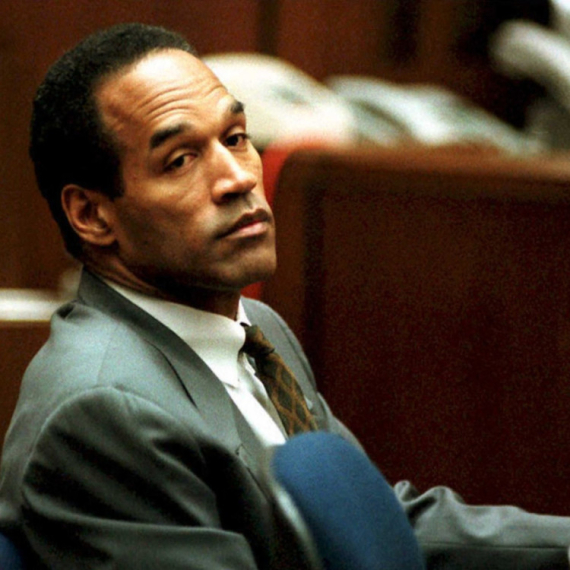EU “won’t let Greece default”
Greece will have to wait until the end of October for a decision from eurozone partners on whether they will release the next installment of its bailout fund.
Tuesday, 04.10.2011.
12:41

Greece will have to wait until the end of October for a decision from eurozone partners on whether they will release the next installment of its bailout fund. Greek Finance Minister Evangelos Venizelos fought Monday for recognition of Athens' reforms at a eurozone meeting in Luxembourg, calling Greece's projected 2012 budget "very ambitious." Eurogroup chairman Jean-Claude Juncker, however, said the Greek government must make further cuts in 2012 and 2013 to secure further financing. EU “won’t let Greece default” Athens is teetering on the brink of default and needs the next EUR 8bn tranche of emergency international loans by November if it is to pay government employee salaries. European shares closed Monday at their lowest in a week, on news that Greece would miss its deficit targets for this year. Finance ministers categorically ruled out the chance of Greece defaulting during a meeting in Luxembourg on Monday, but their words were not enough to steady the markets. Juncker said Greece's troika of international creditors, comprising the International Monetary Fund (IMF), the European Central Bank (ECB) and the EU would not make its October 13 deadline to decide on the next tranche. That date was only set after the troika scrapped its original deadline last month when it determined that Athens had failed to implement its promised reforms. Banks were among the worst hit stocks Monday, with the Belgian-French bank Daxia shedding 10 percent, raising pressure on state shareholders, who pledged to prop up the institution if need be. Belgian Finance Minister Didier Reynders said early Tuesday that France and Belgium would "step in" if needed to save Daxia with a second bailout. "The French and Belgian governments are behind their banks," Reynders said, "whether it's Dexia or another one." Dexia has pledged to resolve "structural problems" resulting from bad assets. There is speculation the bank could be divided. However, these promises clearly failed to reassure investors, as Dexia's plunge accelerated on Tuesday, with it losing more than 30 percent of its value in early trading. Meanwhile Monday, British Chancellor of the Exchequer George Osborne warned that the eurozone must recapitalize its banks as part of a solution to the Greek debt crisis. The finance ministers' meeting in Luxembourg did see one success in the resolution of an ongoing debate. Eurozone ministers struck a deal on Finland's demand for collateral in exchange for participating in a second bailout for Greece. All states sharing the euro currency will be allowed to request collateral in exchange for accepting worse interest rates on their credit to Greece. It is expected only Finland will take advantage of the deal. Juncker said all other countries gave a "clear no" when he asked if they would be requesting collateral. EU Economy Commissioner Olli Rehn declared it "a balanced and fair solution." Jean-Claude Juncker (Beta, file)
EU “won’t let Greece default”
Athens is teetering on the brink of default and needs the next EUR 8bn tranche of emergency international loans by November if it is to pay government employee salaries.European shares closed Monday at their lowest in a week, on news that Greece would miss its deficit targets for this year.
Finance ministers categorically ruled out the chance of Greece defaulting during a meeting in Luxembourg on Monday, but their words were not enough to steady the markets.
Juncker said Greece's troika of international creditors, comprising the International Monetary Fund (IMF), the European Central Bank (ECB) and the EU would not make its October 13 deadline to decide on the next tranche. That date was only set after the troika scrapped its original deadline last month when it determined that Athens had failed to implement its promised reforms.
Banks were among the worst hit stocks Monday, with the Belgian-French bank Daxia shedding 10 percent, raising pressure on state shareholders, who pledged to prop up the institution if need be.
Belgian Finance Minister Didier Reynders said early Tuesday that France and Belgium would "step in" if needed to save Daxia with a second bailout.
"The French and Belgian governments are behind their banks," Reynders said, "whether it's Dexia or another one."
Dexia has pledged to resolve "structural problems" resulting from bad assets. There is speculation the bank could be divided.
However, these promises clearly failed to reassure investors, as Dexia's plunge accelerated on Tuesday, with it losing more than 30 percent of its value in early trading.
Meanwhile Monday, British Chancellor of the Exchequer George Osborne warned that the eurozone must recapitalize its banks as part of a solution to the Greek debt crisis.
The finance ministers' meeting in Luxembourg did see one success in the resolution of an ongoing debate. Eurozone ministers struck a deal on Finland's demand for collateral in exchange for participating in a second bailout for Greece.
All states sharing the euro currency will be allowed to request collateral in exchange for accepting worse interest rates on their credit to Greece.
It is expected only Finland will take advantage of the deal. Juncker said all other countries gave a "clear no" when he asked if they would be requesting collateral.
EU Economy Commissioner Olli Rehn declared it "a balanced and fair solution."


























































Komentari 18
Pogledaj komentare